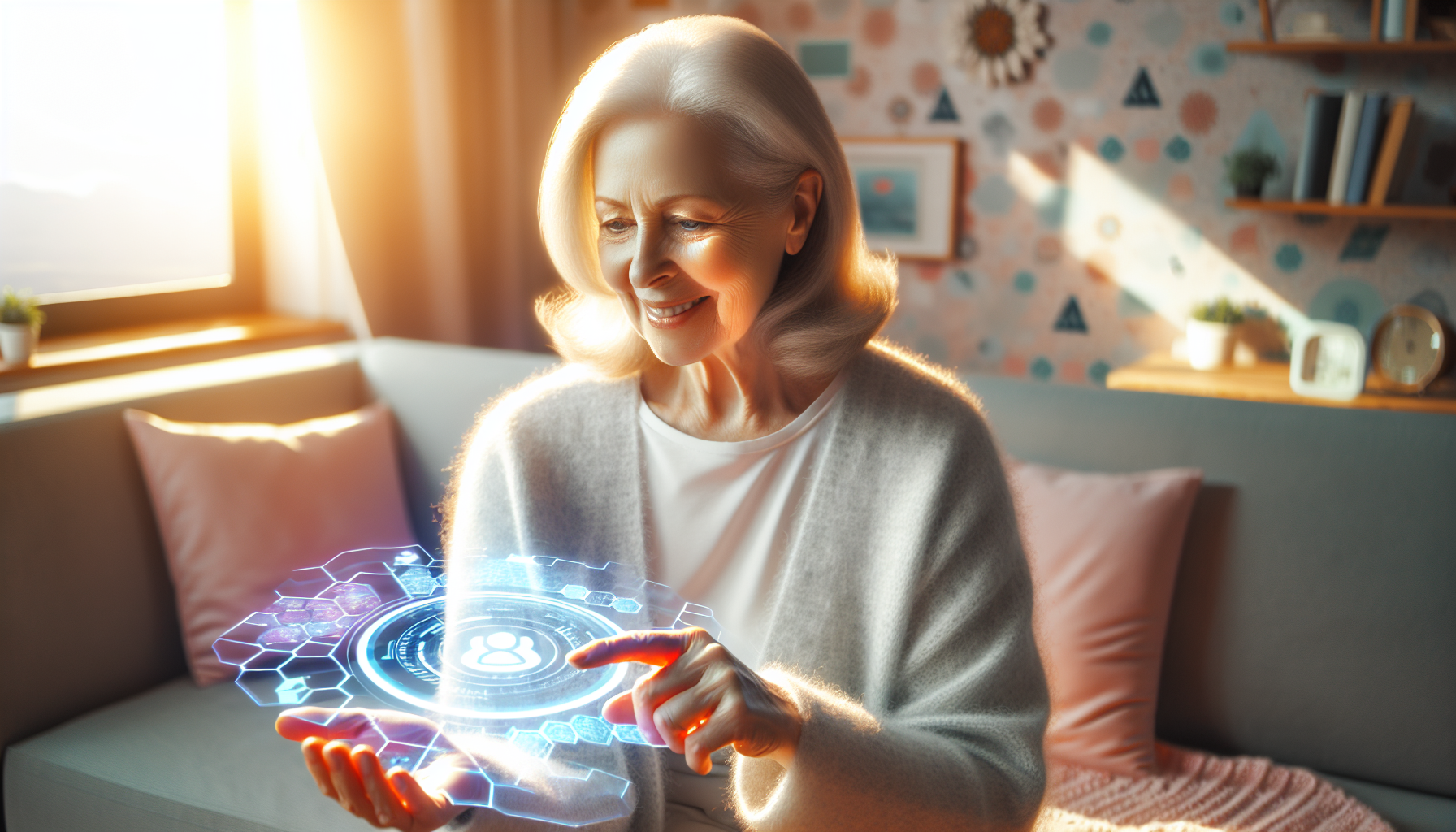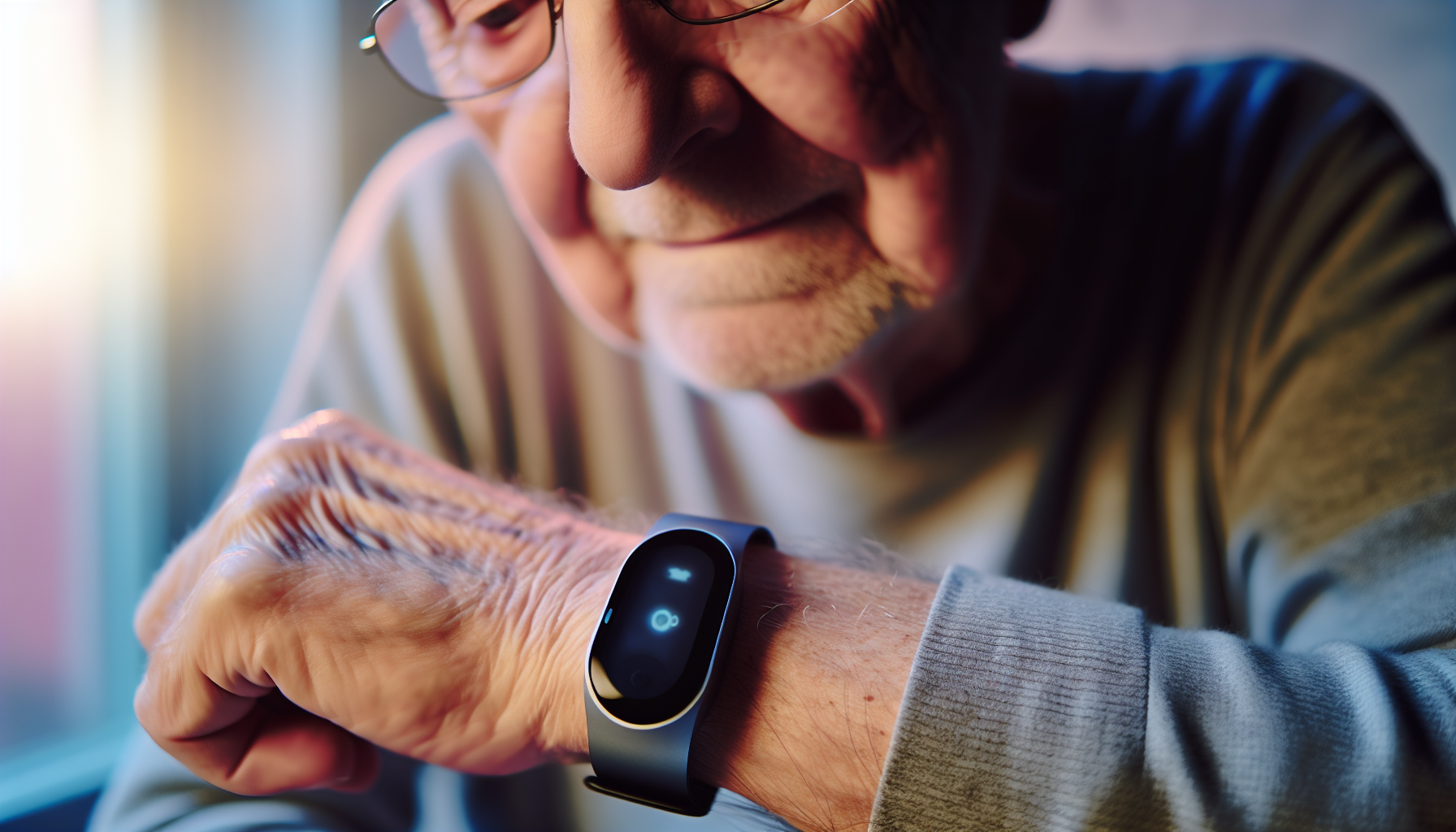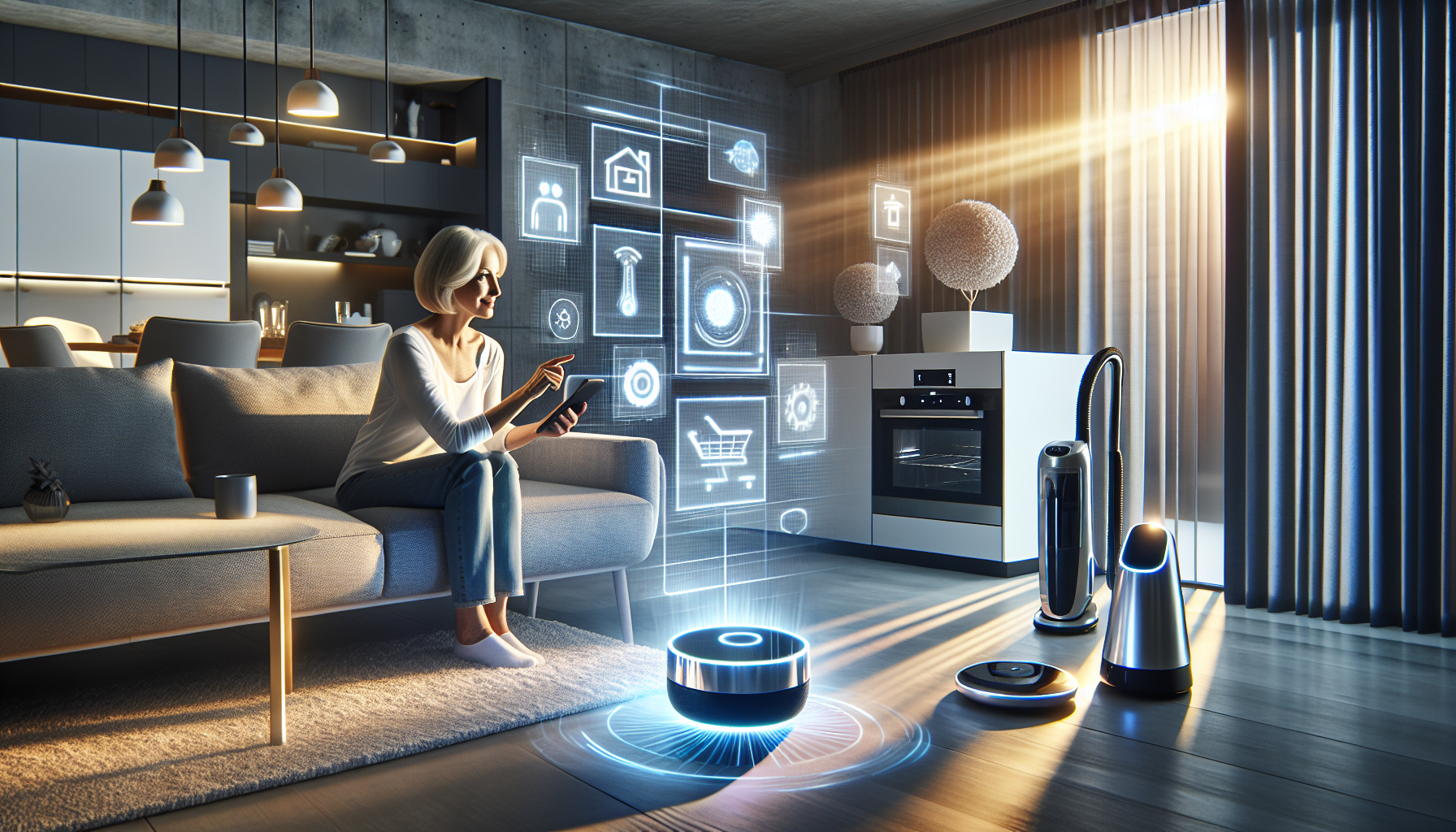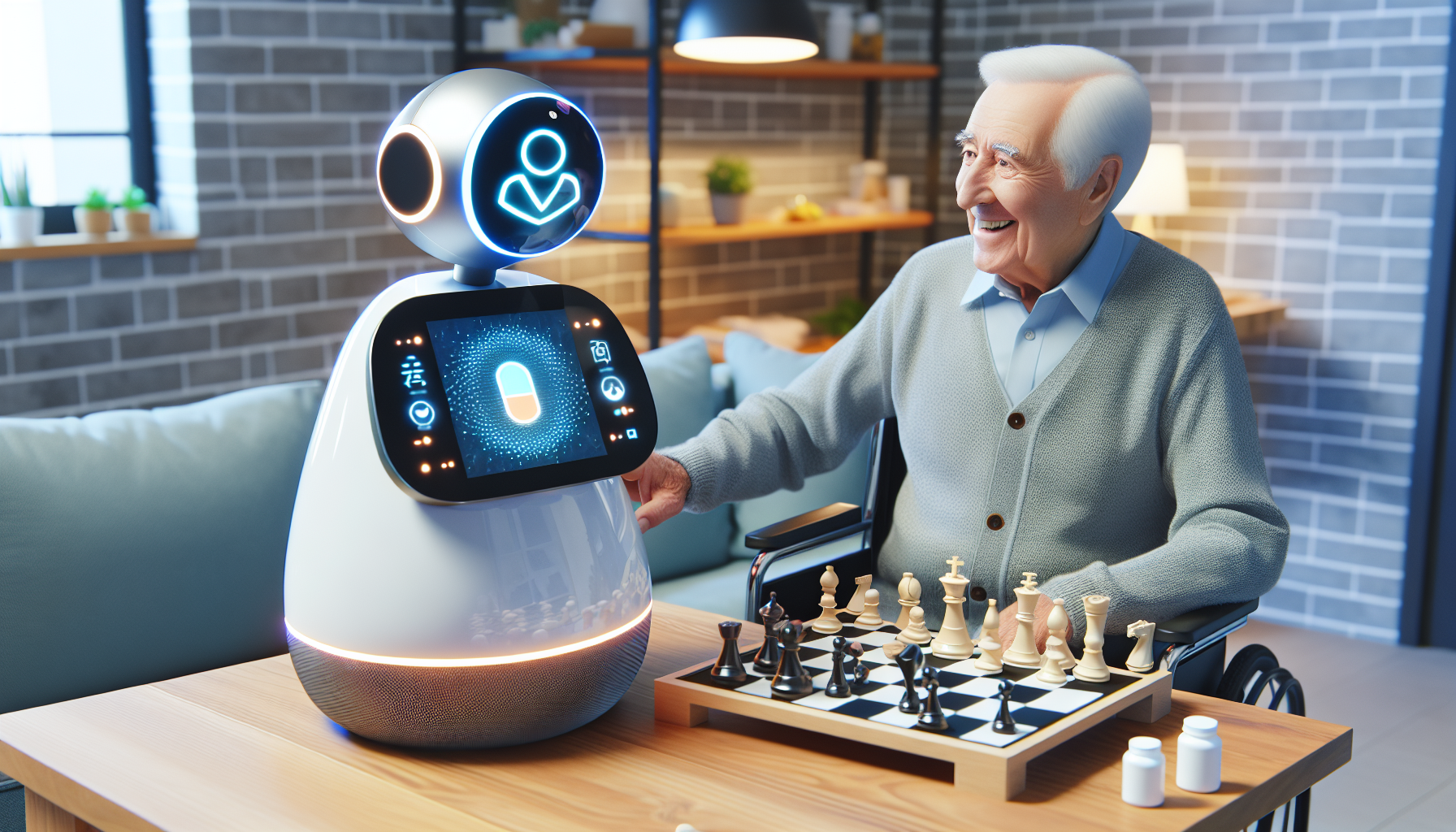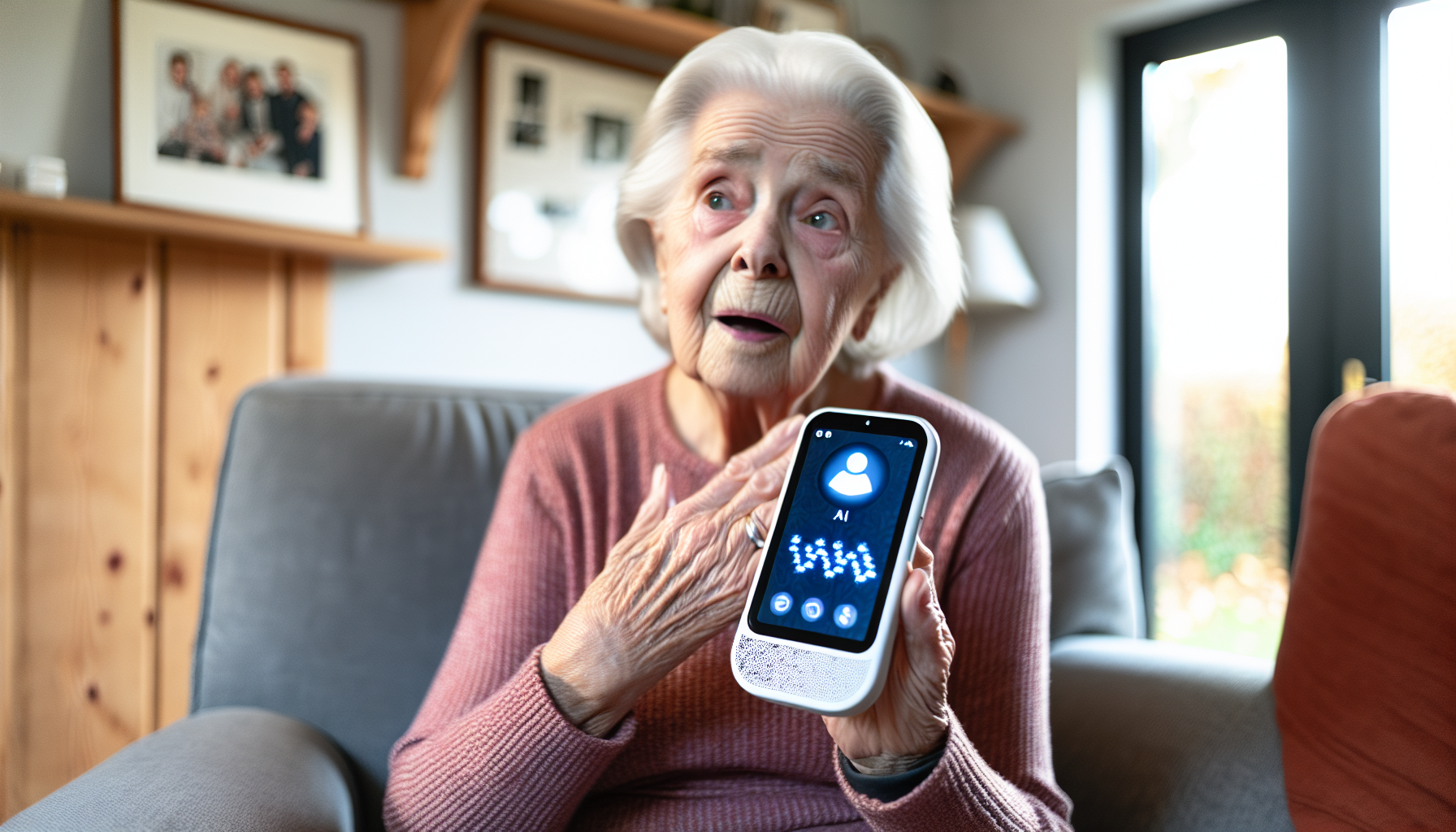Enhancing Elderly Well-being: Top Benefits of AI in Senior Safety and Security
AI is revolutionizing senior safety and security. In this article, we examine how artificial intelligence improves the lives of our older population by offering advanced solutions like reliable detection for falls, real-time monitoring of health status, and prompt emergency responses by understanding how AI ensures seniors’ safety while preserving their independence and privacy in an increasingly technology-driven society.
Key Takeaways
- AI is significantly improving senior safety at home through fall detection systems, environmental monitoring, and surveillance technology, all while respecting privacy.
- AI helps seniors maintain independence by providing cognitive assistance, navigational support, and tools for social engagement to combat isolation.
- Real-time health monitoring, cybersecurity, and emergency preparedness facilitated by AI technology are instrumental in mitigating risks for the elderly.
Reinforcing Safety in the Comfort of Home
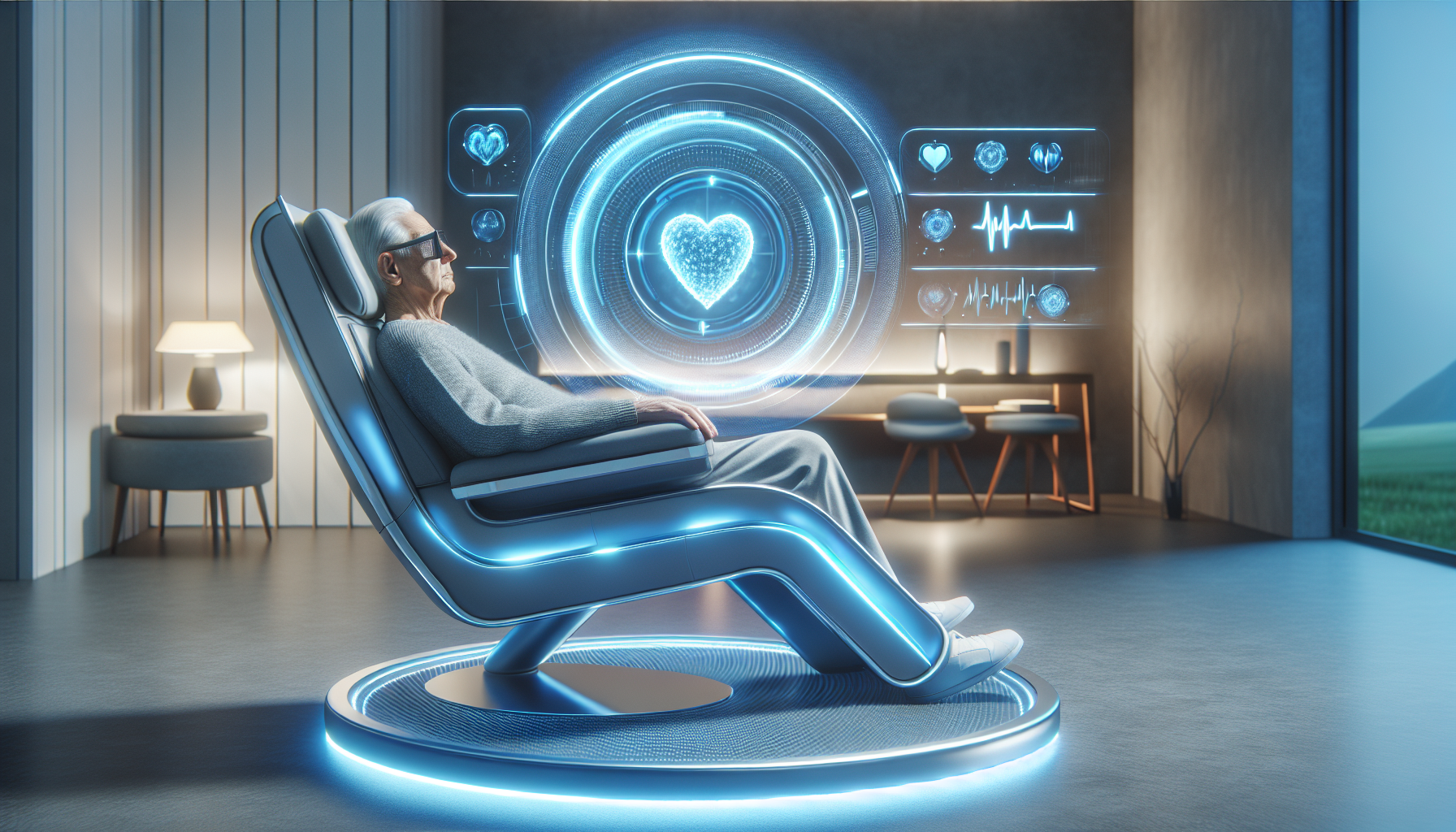
Gone are the days of constant worry for family members about the safety and security of their elderly loved ones at home. Thanks to advancements in AI technologies, our seniors can now enjoy a sense of comfort while maintaining their health and well-being.
The use of AI has greatly strengthened home safety measures. This includes ensuring that our seniors have access to necessary medical resources as well as providing them with an added layer of security. With these technological developments, families can rest assured knowing that their senior relatives are safe and secure within the comfort of their own homes.
Fall Detection and Response
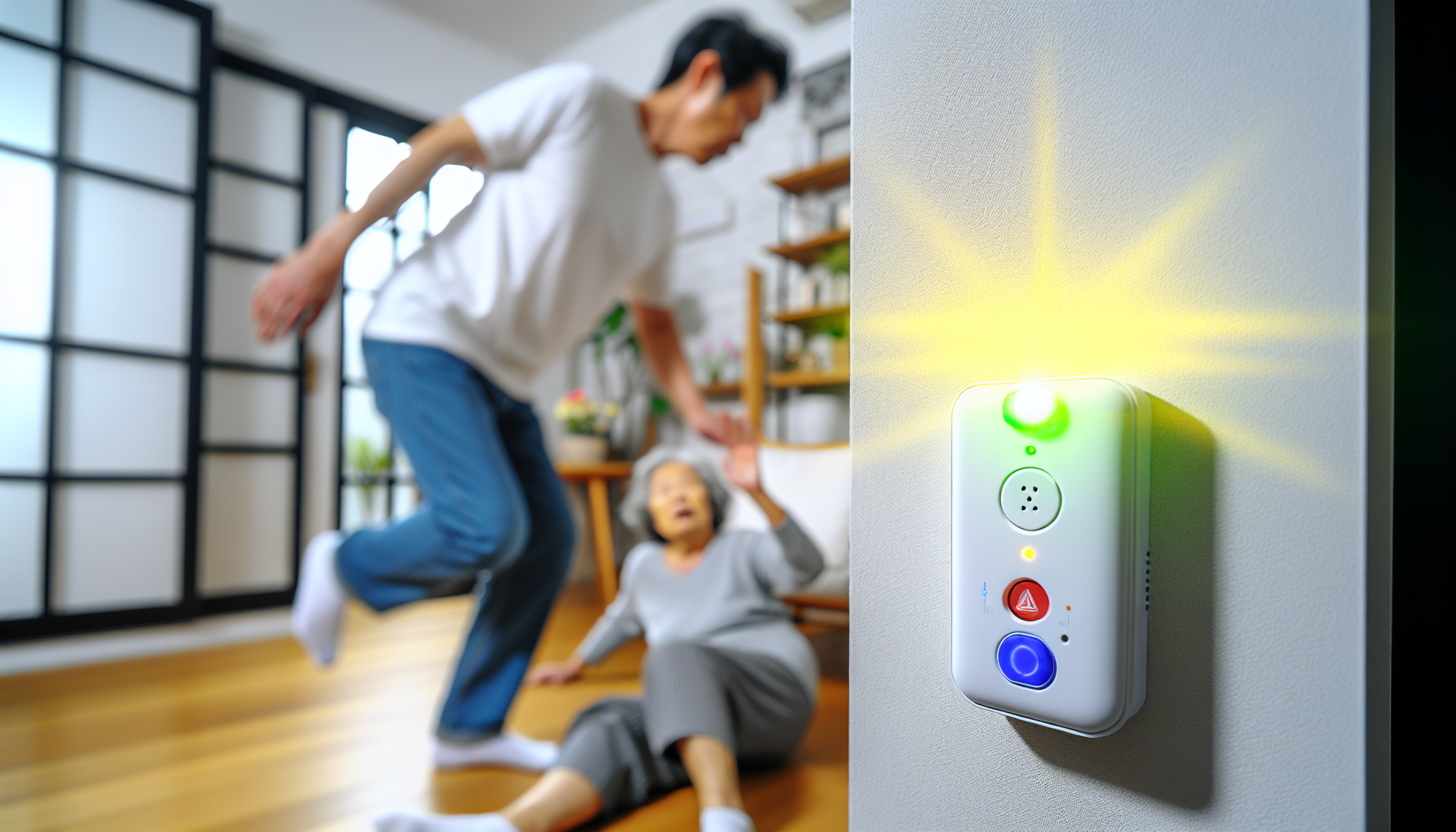
Advanced AI systems used in elderly care greatly benefit from their ability to detect falls. This is crucial as prompt medical assistance can make a significant difference for older adults who experience accidental falls. By utilizing sensors and sophisticated AI algorithms, fall detection systems are able to identify any instances of falling, immediately alert caregivers or emergency services, reduce response times, and ultimately improve overall outcomes.
The advent of devices such as the Apple Series 4 Watch, Medical Guardian, and Bay Alarm Medical has revolutionized fall detection technology. Not only do these wearable devices promptly notify caregivers about potential falls, but they also provide an additional layer of safety by actively sensing and responding to falls themselves. This advanced technology guarantees that our beloved seniors are well-protected and help will be readily available when needed. Thanks to this innovative use of AI within eldercare, safety measures have been taken up another level.
Environmental Monitoring for Health Risks
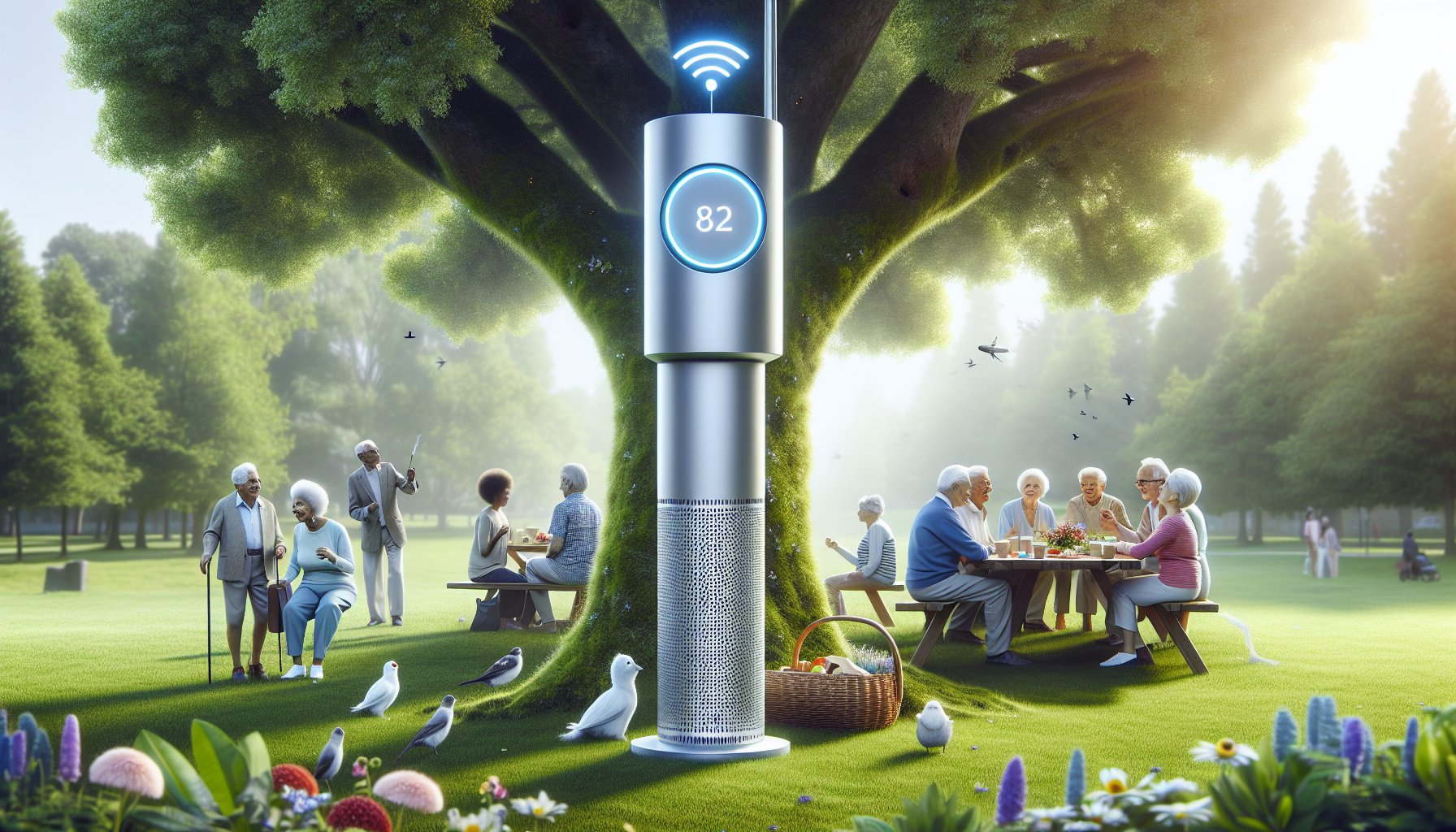
The advancement of AI in senior care has led to the development of environmental monitoring systems. These innovative technologies utilize artificial intelligence to constantly monitor potential health risks, such as changes in air quality or temperature. They are able to automatically adjust settings within a living space to ensure a safe environment for seniors.
Specifically designed for use in senior care, popular AI-powered environmental monitoring systems like Zemplee and Sensi.AI keeps track of daily routines while also respecting privacy. In case any abnormalities occur, caregivers will receive immediate notifications from these advanced systems regarding their seniors’ well-being.
Surveillance Technology: A Watchful Eye
The implementation of surveillance technology has played a crucial role in enhancing the safety and security of elderly individuals who reside at home. Through the use of AI-powered cameras and motion sensors, seniors’ activities are monitored closely to identify any abnormal behaviors that may compromise their well-being.
With advancements in artificial intelligence, this form of monitoring becomes even more effective as it also keeps track of vital signs and predicts potential health issues. While concerns have been raised about privacy implications due to these technologies, measures have always been taken to maintain a balance between ensuring senior’s safety while respecting their personal space and civil rights.
Empowering Seniors Through AI-Assisted Independence
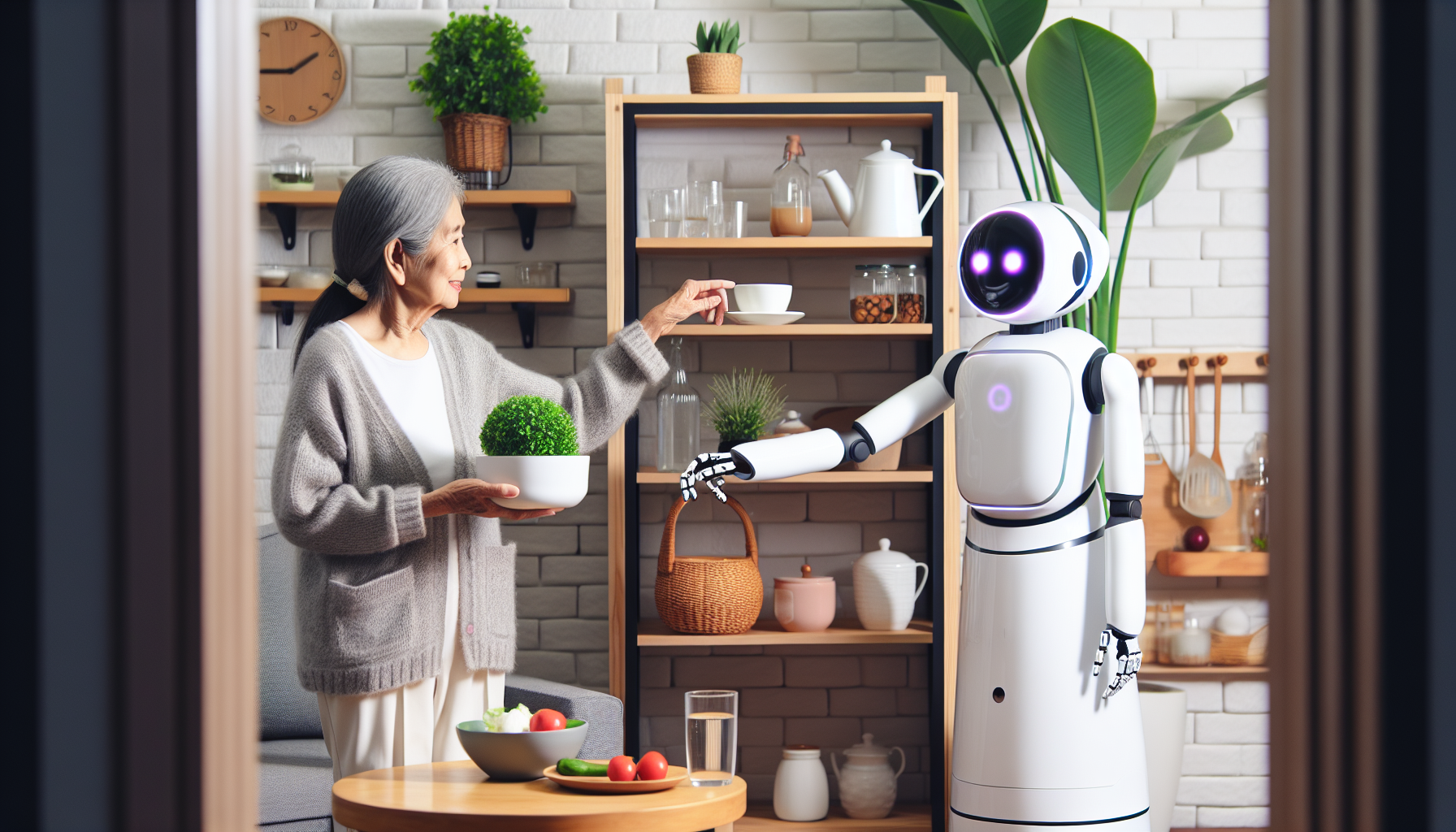
Seniors can maintain their independence and prioritize their safety through the use of AI technologies, making aging a time to embrace rather than fear. With cognitive assistance for memory and decision-making, navigational support for daily tasks and mobility, as well as social engagement to combat loneliness, seniors can enjoy the full benefits of technology in maintaining their health.
Through utilizing advanced Intelligent Automation specifically designed with seniors in mind, older adults are able to live independently while receiving necessary cognitive assistance when needed. They have access to helpful navigational tools that allow them to complete daily tasks with ease and stay mobile without relying on others’ help. Social isolation is also addressed by promoting regular communication through various digital platforms, all thanks to these revolutionary AI technologies that cater exclusively towards enhancing senior living experiences.
Cognitive Assistance and Reminders
The aging process often brings about cognitive decline, but with the emergence of AI-powered home assistants, seniors are now receiving revolutionary assistance. These virtual aids effectively support daily routines by providing timely reminders for medication intake, appointments and other important tasks.
In-home care is greatly facilitated as these AI companions can schedule medical appointments and set reminders while also organizing transportation arrangements to ensure that no healthcare visits are missed. This ultimately results in efficient care for seniors who may have otherwise struggled with managing their health needs independently.
Navigating Daily Life
As we age, the most basic tasks can become difficult to manage. Luckily, Smart Technology advancements provide seniors with much-needed assistance for navigating daily life. With features such as mobility aids and voice-activated devices, AI is now allowing seniors to maintain their independence and comfortably live in their own homes.
Specifically designed robotic aides powered by AI have proven incredibly beneficial for senior citizens struggling with mobility or other daily tasks. Voice-controlled gadgets equipped with artificial intelligence have given older adults newfound freedom to effortlessly control lights, temperature settings, household appliances and even make emergency calls if necessary, all without having to use their hands or eyes.
Thanks to these groundbreaking technologies developed through continuous research and development of AI-driven solutions tailored towards assisting aging individuals, seniors can now confidently handle day-to-day activities within the comfort of their own home without any barriers hindering them from living a fulfilling independent life.
Social Engagement and Combatting Isolation
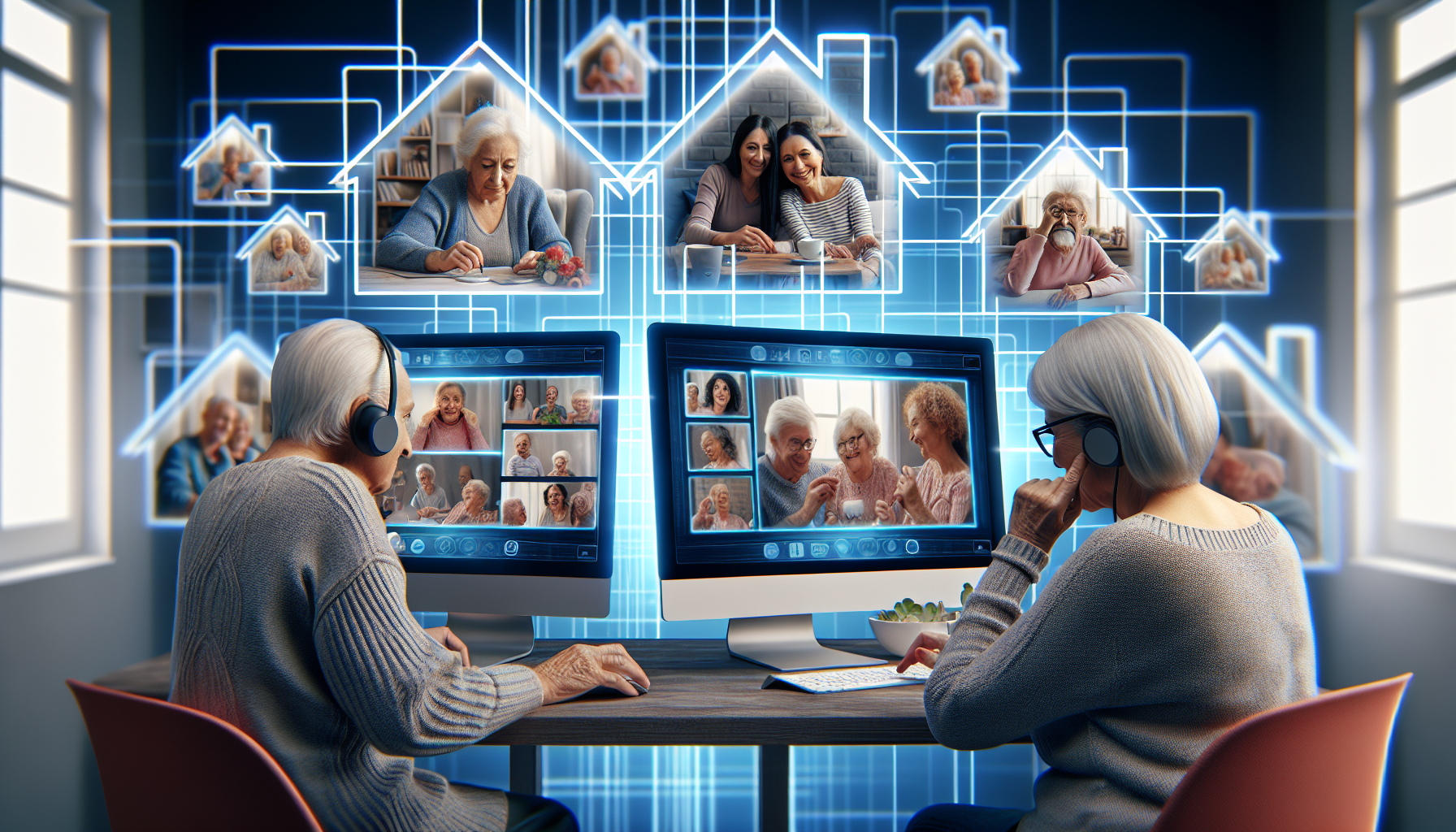
One of the main challenges faced by seniors is social isolation, but thanks to AI applications, this issue is being addressed. By utilizing virtual platforms and communication tools, AI connects seniors with loved ones and caregivers, promoting social engagement and improving their overall mental health.
There are now various AI apps available that focus on providing companionship for seniors through methods such as companion robots or chatbots designed for conversation. There are cognitive support apps aimed at helping seniors stay connected with others and actively participate in the world around them.
Mitigating Risks with Real-Time Monitoring
The introduction of Intelligent Automation for real-time monitoring has transformed the approach to managing risk in senior care. These advanced tools offer a range of features such as health tracking, cybersecurity measures, and emergency preparedness specifically designed for seniors to ensure their continual safety and overall well-being. This cutting-edge technology is revolutionizing the way we monitor and address the risks associated with aging individuals.
Health Monitoring and Alerts
AI-powered health monitoring devices are revolutionizing senior care by:
- Tracking vital signs and other health indicators, contributing to senior’s health
- Alerting caregivers and medical professionals to potential issues before they become critical
- Enabling timely intervention and effective care
- Improving the overall health outcomes for seniors with help from family members.
AI health gadgets can monitor a variety of health parameters, including:
- heart rate
- oxygen levels
- skin temperature
- glucose levels
- cortisol levels
- electrolyte levels
This comprehensive health monitoring ensures that any potential health issue is identified and addressed promptly.
Security Against Cyber Threats
The importance of cybersecurity in today’s digital world cannot be emphasized enough. The use of Intelligent Systems plays a crucial role in safeguarding seniors from cyber threats, as it can identify and prevent any unauthorized access to personal information or devices.
AI systems offer numerous advantages when it comes to securing seniors’ sensitive data.
- They constantly monitor for unusual activity
- They utilize biometric data for enhanced security measures
- They effectively defend against potential cyber attacks
- They ensure that personal information is kept safe at all times
Thanks to the progress made by national institutes, we can have peace of mind knowing our senior citizens are protected, and their private information remains secure through advanced AI technologies.
Emergency Preparedness
Emergencies often arise unexpectedly. The use of AI systems can anticipate and plan for emergencies like natural disasters or health emergencies, guaranteeing that seniors are well-equipped with necessary resources and support.
Whether it is a medical crisis or a natural disaster, AI systems have the ability to:
- Make predictions about potential emergency situations
- Monitor multiple sources of data
- Detect early indicators of possible emergencies
- Notify relevant individuals to ensure prompt intervention.
Innovations in Senior Caregiving
In the future, AI will play a significant role in transforming senior care. Through training and assistance for caregivers to advanced predictive analysis for proactive measures, as well as improved communication between families and providers, AI is at the forefront of enhancing the quality of elderly care.
Training and Support for Caregivers
The continuous progress of artificial intelligence and its technology brings considerable advantages not only to older adults but also for their caregivers. AI provides extensive training and support, allowing caregivers to deliver personalized care that is both effective and efficient.
Tools such as Care Hub, a home care management software powered by AI, along with Kami Vision’s fall management solutions, are just some examples of how artificial intelligence can aid in providing practical solutions for caregiving. These tools enable caregivers to stay connected with seniors’ needs while providing prompt assistance through efficient means.
Predictive Analysis for Preventative Care
The use of predictive analysis through AI has brought significant advancements in senior care, particularly for preventative purposes. With the ability to detect and address potential health concerns early on, this technology promotes a better quality of life for seniors.
AI predictive analysis utilizes a vast amount of data from various sources to predict possible health issues. This includes forecasting emergency transport needs as well as identifying the onset of chronic diseases. Thanks to these capabilities, there is a transformation taking place in how we approach caring for older adults.
Enhancing Communication Between Families and Care Providers
Effective communication is crucial in today’s interconnected society, especially when it comes to senior care. Thanks to AI-powered tools for communication, there has been significant improvement in keeping families, caregivers and seniors informed and involved in making decisions regarding their care.
From addressing queries and offering emotional support to sending alerts for abnormal results, the use of Cognitive Computing has greatly enhanced connectivity between caregivers and families with regards to providing effective care for elderly individuals. This means that everyone can stay connected at all times while ensuring optimal caregiving practices are implemented.
Addressing Concerns and Ethical Considerations
The integration of AI in senior care raises specific ethical concerns, similar to other emerging technologies. These include protecting privacy and civil rights, promoting fairness, and addressing potential biases within the algorithms used for AI systems. It is also crucial to obtain informed consent from users before implementing these new technological advancements.
Privacy and Civil Rights
While AI has proven advantageous in senior care, it is essential to balance these benefits with a deep respect for personal independence and dignity. Safeguarding privacy and civil rights should always remain the top priority when utilizing Intelligent Systems for seniors.
When considering surveillance technology used in caring for elders, precautions must be taken to prevent:
- Non-consensual one-way monitoring resulting in neglect
- Unintentional breaches of privacy
- The potential misapplication of monitoring eldercare staff’s behavior.
Bias and Fairness in AI Algorithms
As the complexity of AI algorithms continues to advance, it is crucial that we ensure their design minimizes bias and upholds fairness. This guarantees equal access to technology and support for seniors from all backgrounds and abilities.
In order to achieve fairness in AI algorithms, it is imperative that biases within machine learning models are identified and corrected. By doing so, we can ensure that AI makes unbiased decisions without discrimination or preferential treatment towards any individual or group.
Informed Consent and User Control
Incorporating Cognitive Computing for seniors necessitates the inclusion of informed consent and user control. It is crucial that older individuals fully understand both the advantages and potential risks associated with this type of technology and maintain authority over decisions regarding their own care and overall well-being.
When implementing AI applications, obtaining consent should be considered an ongoing process. Seniors must have the power to determine whether they feel comfortable utilizing such technologies in relation to their healthcare needs. This ensures active participation in their personal journey towards better health outcomes through technological advancements with informed decisions.
Summary
From enhancing safety in the comfort of the home, aiding in daily tasks, and mitigating risks through real-time monitoring to improving the quality of caregiving, the power of AI has indeed revolutionized senior care. As we continue to explore this exciting realm, let us remember that while technology is a powerful tool, the human touch remains irreplaceable. Let’s embrace these technological advancements, ensuring they serve as aids rather than replacements, and work towards a future where our seniors live safer, healthier, and more fulfilling lives.
Frequently Asked Questions
How can AI be used for senior citizens?
Implementing AI in health monitoring for senior citizens involves utilizing wearable devices and sensors to analyze data, identify irregularities, and offer immediate intervention and individualized care. This modernizes how we monitor our health by providing timely analysis, early detection of potential illnesses, and personalized treatment plans.
How can AI improve safety?
The utilization of AI can potentially enhance safety measures in various workplaces through features such as predictive maintenance, real-time risk evaluation, virtual reality training simulations and wearable devices.
One significant example is using AI to track employee actions and generate immersive simulations for hazard-prone scenarios. These advanced technologies can greatly promote a safer working environment by constantly monitoring risks associated with on-site tasks.
What is the elderly companion AI?
ElliQ is the AI companion designed by Intuition Robotics to assist and keep company with elderly individuals. In an effort to combat loneliness, this robot has been utilized by some seniors in New York City. While it has shown success for some, not all have had a favorable experience with ElliQ’s companionship.
What are the concerns and ethical considerations when implementing AI technology for seniors?
When implementing Artificial Intelligence for seniors, it is vital to consider privacy and bias in algorithms and obtain informed consent. This ensures their privacy, dignity, and autonomy are respected while promoting equal access to technological advancements. Involving seniors in the decision-making process regarding their care and well-being is crucial when utilizing AI technology.

